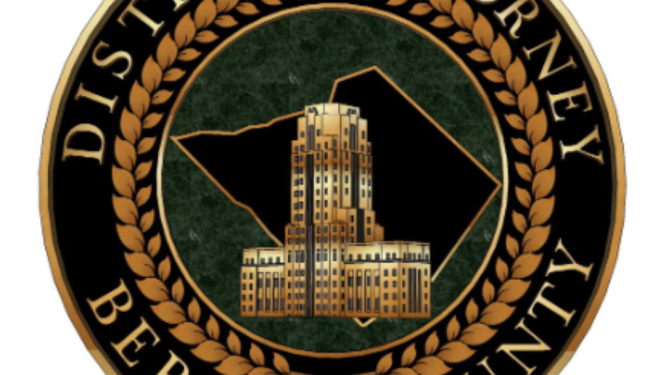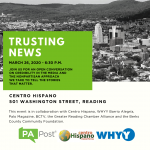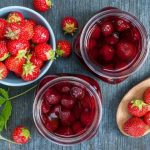This is an account of one individuals experience during Hurricane Maria. Although the storm occurred throughout the entire island and affected everyone, every survivor’s experience is different.
How is a tragedy measured? Is it by statistics? Is it by demographics? The degree of how much the economy was affected by the event? Would I need to read aloud the death toll of an affected area after a natural disaster in order for a storm to be of significance? Or is it by the people, and the stories that they’ve now lived to tell after surviving the tragedy?
Johanna Carrera is a caseworker at the Hispanic Center and a Hurricane Maria survivor. I had the opportunity to sit with her and discuss her experience during Hurricane Maria and its aftermath.
Francheska [interviewer]: “What steps did you take to prepare yourself from Hurricane Maria?
Johanna [interviewee]: “We prepared food and water but for a short period of time.
I told myself, ‘Johanna, you’ve experienced hurricanes before. This is no big deal, it’s not your first one.’ Those were my exact words.”
Francheska: “Were you alone when the hurricane occurred?”
Johanna: “I had a long-time partner that was in the house with me. The only other people were a family of five that I saw out in the middle of Hurricane Maria. Where I lived, there were these very thick bars that allowed me to go out and see into the hurricane while it was happening. I noticed that the family’s house was concrete, but their roof was not so it had already been destroyed…As soon as I realized that, I yelled out to them, but the wind was so powerful and so loud that the family could not hear me…* I turn to my house and see another house completely made out of wood becoming dismantled piece by piece. Once I saw that, I became even more scared, and knew I had to make it back inside of my house. The family wasn’t going to hear me. If I was going to make it out alive, I knew I had to go back inside.
Francheska: “ How did you feel during Hurricane Maria?”
Johanna: “I have overcome a lot, believe me, but the howling of that wind is something that I will have recorded in my mind forever…
I remember looking at the windows, expecting them to be destroyed and looking at our door waiting for the glass in the frame to explode…
Do you know what it was like trying to go to bed after the storm and trying to sleep without knowing [if] the moment you were going to close your eyes was going to be your last?”
After some time, Johanna began talking about the significance of how much the storm made her think of her family. As a student, she lived with her partner in a house in the town of Arecibo. However, Johanna’s family lived one hour away in Orocovis.
Johanna: “My brother and father live separately so I needed to know if they had both survived. I told myself, ‘your father is strong, he is intelligent, he’ll be okay,’ but it didn’t work. I walked outside and saw the destruction and I wasn’t ready to know what it would look like if I were to continue walking. I saw trees get ripped out of the ground effortlessly by Maria, and I thought to myself if that is happening so easily here, then what is happening an hour away where my family is? The roads had become so ruined and destroyed after the storm that there was absolutely no way of traveling. I had to wait an entire month to see my father…”
Francheska: “Once you knew they were alive and well, what was it like having to adjust to everything else?”
Johanna: “The only things that really affected me were the electricity outages, having no water, figuring out what I would eat, and the plagues of spiders and scorpions. There were so many dangerous animals, insects, and rodents that would appear in my house that I started to develop anxiety and have panic attacks.
You needed to consider how much water you needed to bathe, the water you were going to drink, the water you needed to cook, the water you needed to clean, and the water you needed to share.”
Johanna soon became a strong figure in her community. She often cooked for everyone who asked her to and gave food to those who didn’t. She volunteered her services as a case worker and provided comfort for people on the island who experienced the same things she did.
Francheska: “We’ve heard quite a bit about the destruction that Hurricane Maria has caused. Have you seen any positive changes come from the storm?”
Johanna: “Personally it changed something for me that I never really thought was going to change. My relationship with my father has been strained for years, and now him and I live together in Reading. Every morning before I leave for work we have breakfast together, he tells me how proud of me he is, and how much he loves me. Maria gave me the father I always wanted, and for that I’m grateful.”
Francheska: “What do you want to communicate most to readers through this interview?
Johanna: “How much people need to wake up and be grateful for what they have every single day because there may come a day where you may no longer have any of those things…
And just the emotion, I want people to read this and sentirse como el otro [feel like the other], like I did and like my people did. And how yes there was pain, but there was also hope, and eventually triumph.
The Hispanic Center is a non-profit organization. This means that Johanna’s salary fluctuates based off of the donations they receive; sometimes Johanna (and her co-workers) work for free. The Center accepts donations Monday-Friday between the hours of 8 am to 4 pm; online donating is also an available option through their website centrohispano.org.
*Johanna later learned that the family she had seen during the storm survived by taking shelter in a horse’s stable. That stable was the only option that family had amidst the destruction of their home.




